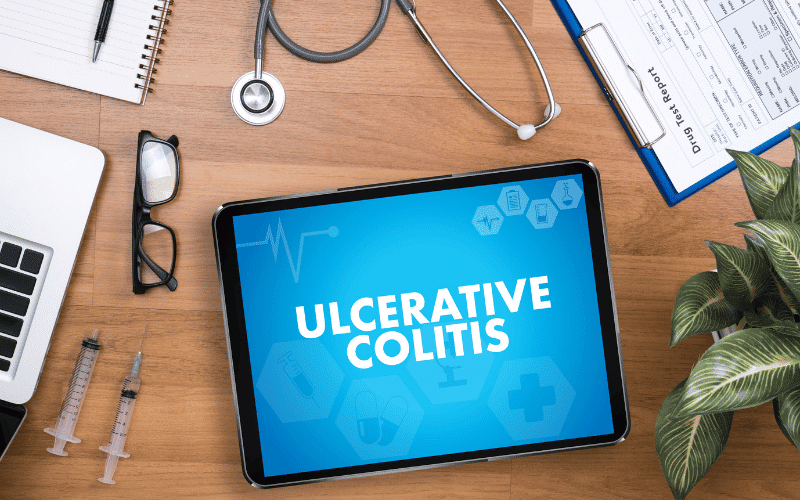Frequently Asked Questions about Ulcerative Colitis Constipation and Relief

1. Can ulcerative colitis cause constipation?
Yes, ulcerative colitis can cause constipation, even though diarrhea is a more common symptom. Constipation in UC patients can result from various factors, such as inflammation in the rectum, medications used for treating UC, or stress.
2. How can I relieve constipation caused by ulcerative colitis?
Relief from constipation caused by ulcerative colitis can be achieved through several strategies, such as increasing fiber intake, staying hydrated, incorporating regular exercise, establishing a consistent bathroom routine, using OTC laxatives with caution, considering probiotic supplements, managing stress, monitoring medication side effects, trying abdominal massage, and seeking medical advice.
3. Are over-the-counter laxatives safe to use for constipation related to ulcerative colitis?
Over-the-counter laxatives can provide temporary relief from constipation but should be used with caution, especially for individuals with UC. Some laxatives may cause further irritation or inflammation in the colon. Always consult with your healthcare provider before using an OTC laxative to determine the most appropriate type, dosage, and duration of use.
4. Can stress affect constipation in people with ulcerative colitis?
Yes, stress can have a significant impact on gut health and exacerbate constipation. Developing effective stress management techniques, such as meditation, deep breathing exercises, and progressive muscle relaxation, can help improve bowel regularity and overall well-being.
5. When should I seek medical advice for constipation related to ulcerative colitis?
If you’ve tried various approaches to alleviate constipation and are still experiencing difficulties, it’s essential to seek professional medical advice. Your healthcare provider can assess your symptoms, review your medical history, and recommend appropriate treatments or interventions to help manage constipation related to UC.
Conclusion: Overcoming Constipation in Ulcerative Colitis
In summary, managing constipation related to ulcerative colitis is achievable through a combination of dietary, lifestyle, and medical interventions. By increasing fiber intake, staying hydrated, incorporating regular exercise, and establishing a consistent bathroom routine, you can help promote bowel regularity. Additionally, using OTC laxatives with caution, considering probiotic supplements, managing stress, monitoring medication side effects, trying abdominal massage, and seeking medical advice when needed can further contribute to alleviating constipation in UC patients.
By implementing these ten strategies for relief, you can effectively address constipation caused by ulcerative colitis and improve your overall quality of life. Remember to consult with your healthcare provider before making any significant changes to your routine or starting new treatments to ensure they’re appropriate for your unique health needs. With persistence and the right approach, you can find relief from constipation and better manage your ulcerative colitis symptoms.